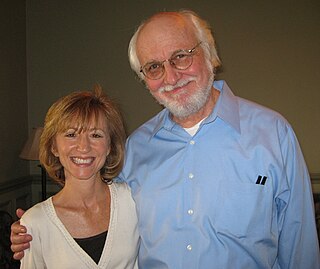 W
WRetrocomputing is the use of older computer hardware and software in modern times. Retrocomputing is usually classed as a hobby and recreation rather than a practical application of technology; enthusiasts often collect rare and valuable hardware and software for sentimental reasons. However, some do make use of it.
 W
WCase modification, commonly referred to as case modding, is the modification of a computer case or a video game console chassis. Modifying a computer case in any non-standard way is considered a case mod. Modding is done, particularly by hardware enthusiasts, to show off a computer's apparent power by showing off the internal hardware, and also to make it look aesthetically pleasing to the owner.
 W
WClassic Game Room was a video game review web series produced, directed, edited and hosted by Mark Bussler of Inecom, LLC. The show reviewed both retro and modern video games along with gaming accessories, pinball machines, and minutiae such as gaming mousepads and food products.
 W
WClickjacking is a malicious technique of tricking a user into clicking on something different from what the user perceives, thus potentially revealing confidential information or allowing others to take control of their computer while clicking on seemingly innocuous objects, including web pages.
 W
WCyberArts International was a series of conferences dealing with emerging technologies that took place during years 1990, 1991, and 1992 in Los Angeles and Pasadena, California. The gatherings brought together artists and developers in all types of new media, including software engineers, electronic musicians, and graphic artists to explore what was a new field at the time, digital media collaborations.
 W
WCyberdelic was the fusion of cyberculture and the psychedelic subculture that formed a new counterculture in the 1980s and 1990s.
 W
WThe Day of the Programmer is an international professional day that is celebrated on the 256th (hexadecimal 100th, or the 28th) day of each year (September 13 during common years and on September 12 in leap years). It is officially recognized in Russia.
 W
WThe Digital Writing and Research Lab (DWRL) is a research lab at The University of Texas at Austin, United States, dedicated to the identification and promotion of twenty-first-century literacies. These literacies range from navigating online newsfeeds and participating in social networking sites to composing multimedia texts that require producing, sampling, and/or remixing media content.
 W
WThe word geek is a slang term originally used to describe eccentric or non-mainstream people; in current use, the word typically connotes an expert or enthusiast obsessed with a hobby or intellectual pursuit. In the past, it had a generally pejorative meaning of a "peculiar person, especially one who is perceived to be overly intellectual, unfashionable, boring, or socially awkward". In the 21st century, it was reclaimed and used by many people, especially members of some fandom, as a positive term.
 W
WThe Old School Emulation Center (TOSEC) is a retrocomputing initiative founded in February 2000 initially for the renaming and cataloging of software files intended for use in emulators, that later extended their work to the cataloging and preservation of also applications, firmware, device drivers, games, operating systems, magazines and magazine cover disks, comic books, product box art, videos of advertisements and training, related TV series and more. The catalogs provide an overview and cryptographic identification of media that allows for automatic integrity checking and renaming of files, checking for the completeness of software collections and more, using management utilities like ClrMamePro.
 W
WThe terms internet tribe or digital tribe are used as slang terms for unofficial online communities or organizations of people who share a common interest, and who are usually loosely affiliated with each other through social media or other Internet routes. The term is related to "tribe", which traditionally refers to people closely associated in both geography and genealogy. Nowadays, it looks more like a virtual community or a personal network and it is often called global digital tribe. Most anthropologists agree that a tribe is a (small) society that practices its own customs and culture, and that these define the tribe. The tribes are divided into clans, with their own customs and cultural values that differentiate them from activities that occur in 'real life' contexts. People feel more inclined to share and defend their ideas on social networks than they would dare to say to someone face to face. For example, it would be ridiculous to 'poke' someone in real life.
 W
WThe Vintage Computer Festival (VCF) is an international event celebrating the history of computing. It is held annually in various locations around the United States and various countries internationally. It was founded by Sellam Ismail in 1997. As of February 2015, most rights to the Vintage Computer Festival franchise are owned by the Vintage Computer Federation Inc., a 501(c)(3) educational non-profit organization.